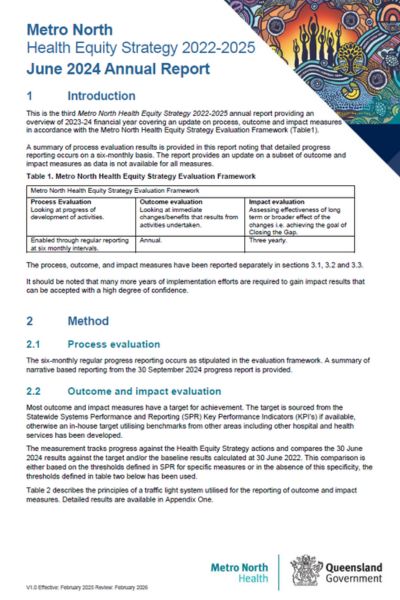Frequently Asked Questions
Below are some questions that are regularly asked about health equity and health equality, and what Metro North are trying to achieve with the Metro North Health Equity Strategy.
Contact us
Health Equity Program
Phone: (07) 3170 4446
HealthEquityMNH@health.qld.gov.au
Visit our Facebook Page
Join the conversation #ourhealthourway #forcommunity via the Better Together Health Van Facebook page
“I want to reinforce our commitment to strengthening relationships, listening to, and learning from the community we serve, and working towards health equity in true co-design, at all stages of health care services development and planning to ensure we are providing high-quality person centred care that is culturally responsive, empowers self-care and choice, and is designed to improve health and wellbeing.”
“If we get this right for Aboriginal and Torres Strait Islander people, we’ll get it right for every patient, every community member that comes into our health service.”
“Health Equity for me, my family and community is about making sure that we’re able to access services without fear.”
“Health Equity is not just for Aboriginal and Torres Strait Islander people, it’s for non-Indigenous people to understand what we go through as well.”
“With this journey now, we need to keep on doing. It’s not moving as quickly as it should be, but we are getting there.”
“We can’t do things alone. From your doctors, your surgeons, your medical staff, all the team – we’ve got to be involved.”
“I am proud of who I am and that I’m an Elder in the local community. Because of my life experiences I know of the changes within the health services, especially where mob are concerned. The health eq4uity journey is exciting. Being an Elder I expect the respect that I deserve and am always willing to give advice when and where it is needed.”

